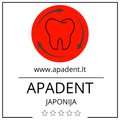|
Yes.
Many conventional rinse aids acts nonspecifically , i.e. destroys all bacteria , whether harmful or beneficial.
What does "good bacteria" in the mouth mean?
There is a natural mouth microbiota – thousands of species of bacteria that support:
Certain bacteria inhibit the growth of decay-causing microbes by competing for space and food. They are called commensal (good) ones .
What happens if you use strong rinse aids too often?
-
Chlorhexidine, alcohol, strong antiseptics can disrupt the microflora.
-
The loss of beneficial bacteria can:
-
Balance the pH of your mouth
-
Stand out bad breath (halitosis)
-
Increase growth of pathogenic bacteria (e.g. candida or streptococci)
-
Decrease natural gum protection
-
Increase the risk of tooth decay eventually
Scientific research shows that long-term use of chlorhexidine changes the composition of the oral microflora, reducing its diversity and causing imbalance.
What to choose instead?
-
Milder formulas without alcohol and strong antiseptics (e.g. Apagard Rin-Su or Apagard Deep Care )
-
Products with mHAp (nano-hydroxyapatite) – does not kill bacteria , but strengthens tooth enamel and inhibits plaque buildup
-
Supports the natural balance of microbiota
How do Apagard Rin-Su and Deep Care work?
-
Nano-hydroxyapatite (nano<mHAp>) adheres to the surface of the teeth and fills microscopic irregularities.
-
This reduces the roughness of the surface to which bacteria usually attach more easily.
-
In this way plaque formation is made more difficult , and existing biofilms become less durable .
-
In addition, nano<mHAp> binds to bacteria , preventing them from joining together to form colonies.
Result: less new plaque forms in the mouth, especially if these rinses are used regularly in combination with nano<mHAp>-containing toothpaste and an antibacterial toothbrush.
|







